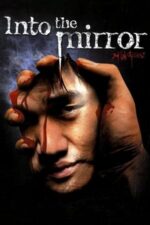Double Trouble: Exploring the Enduring Fascination with Twin Sisters on Screen
Okay, let’s talk about twin sisters in film. It's a trope that pops up everywhere, from campy horror flicks to heartwarming musicals, and for good reason – it offers filmmakers an incredible playground of narrative possibilities. There's something inherently compelling about two people sharing the same DNA, existing side-by-side yet often leading vastly different lives. It’s ripe for exploring themes of identity, envy, deception, and connection in ways a single character simply can’t facilitate.
Think about it: the very concept of twins immediately raises questions. Are they truly individuals? How does shared genetics shape their personalities and destinies? And what happens when those shared roots become tangled with conflict or even outright malice?
Take Dead Ringer, for example. The film really digs into class disparity, but the twin dynamic amplifies that tension tenfold. One sister lives a life of privilege while the other struggles – and the act of switching places isn't just about revenge; it’s a visceral commentary on societal injustice. It’s a dark mirror reflecting back at us, asking: what if you could step into someone else's shoes, even if those shoes were built on inequality?
Then there's Twins of Evil, which leans heavily into the gothic horror tradition. The idea of identical twins being manipulated by supernatural forces – one embracing darkness, the other fighting against it – is a classic setup for exploring good versus evil, and the inherent fragility of morality. It’s almost like they represent two sides of the same coin, destined to be forever intertwined in a battle for their souls. I remember seeing this as a kid and being genuinely terrified by how easily identities could be blurred and twisted!
But it's not all darkness and revenge. The Young Girls of Rochefort offers a completely different perspective. It’s pure joy – two sisters, each pursuing their artistic passions in a charming French setting. While the film isn't overtly about conflict, the twin dynamic still adds a layer of resonance; they support and inspire each other, highlighting the power of sisterhood and shared dreams.
Even films like Beeswax and A Stolen Life, which deal with more grounded emotional turmoil, use the twin relationship to amplify the stakes. The inherent connection between them creates a pressure cooker of emotions – resentment, guilt, love – that wouldn't be as potent if they were just friends or siblings in general.
Ultimately, the enduring appeal of the “twin sister” narrative lies in its ability to hold up a mirror to ourselves and our relationships. It’s a cinematic shortcut to exploring complex themes about identity, family, and the choices we make – sometimes with devastating consequences, other times with heartwarming results. So next time you're looking for something a little different, consider diving into a film featuring twin sisters; you might be surprised by what you discover.







































